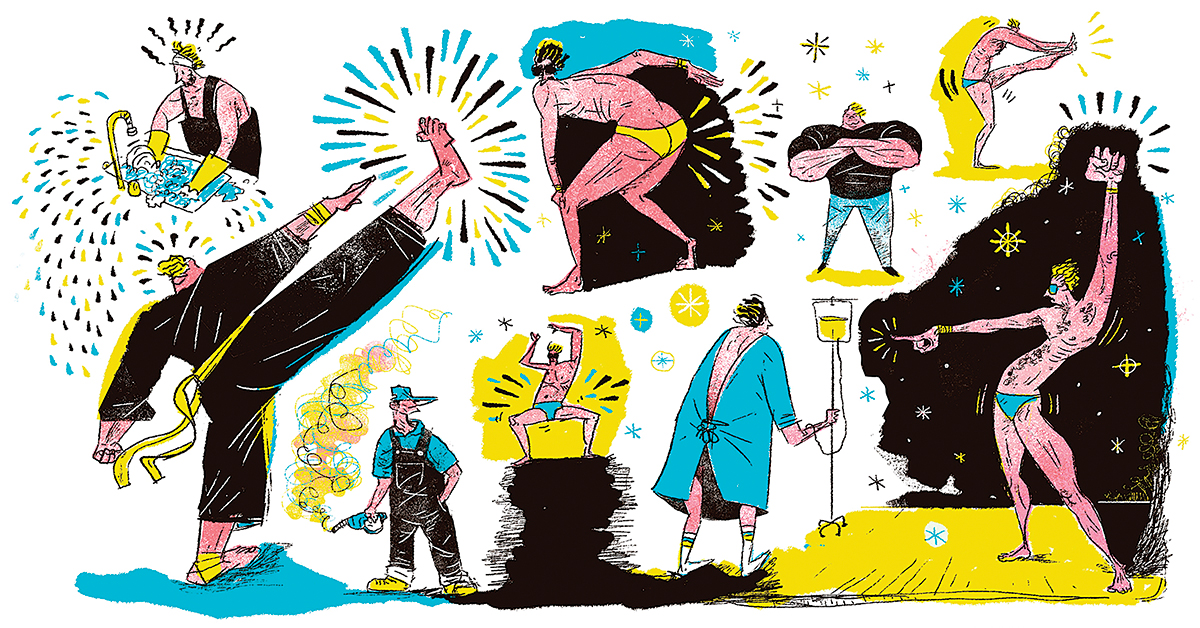I graduated into a recession with a master's degree in English literature. It was comforting, for some months, to blame others for my inability to find meaningful employment. There was a global conspiracy of human resources professionals who failed to understand and value my brilliance.
My friends were in on it, too. They had chosen professions such as medicine and law and engineering, and their instant success upon graduation seemed designed to humiliate me. How dare they secure mortgages and Volkswagens and all-inclusive trips to Caribbean resorts while I supplemented my three-figure income as a debut novelist with monthly trips to my parents' house to take their beer bottles to the depot?
There were jobs, of course. Internships, retail positions, teaching English in Asia and the Middle East. But they weren't right at all. I had two university degrees and photocopies of my transcripts. Hello?
I had learned about meaningful work from television and movies, from my extended family. I imagined a stable and conventional life as a creative director or a member of the diplomatic corps, a marketing executive - whatever that was. Once I found it, my perfect job, I would have it for 40 years and then retire into volunteer service and group travel.
What I lacked, at the time, was a mentor. No one told me what I most needed to hear, that teaching English in Bahrain or working for a year in a Montreal shoe store would be good for me. More than good. I needed someone with a leathery voice to tell me that the forever-job with benefits and a pension, my parents' dream for me, would never really happen.
It happens for fewer and fewer of us. I have found in recent years, when I meet someone new in a social setting and we veer toward the inevitable question "What do you do?" we tend to pause before we answer. We don't know how to answer. Our volunteer project? Our knitting ambitions? Piano lessons? Recent travel? The job? If we are what we do, we're having a subtle identity crisis.
Noah Richler, who writes about Canadian literature, often gets a chance to appear at literary festivals. He introduces authors, and when he does it, he never reads from their official biographies. Instead, he takes them aside before the event and asks about the jobs they've had. Not writing jobs or jobs teaching writing. Real jobs.
Once, long ago, before he introduced me, it took him 15 minutes to discover I had done more than work for television stations and newspapers, which he found boring and obvious. He wanted to know about the things I did not include on my resumé. I had been a (tiny) bouncer at a bar. One night when the house go-go dancer at a nightclub threw up, the owner paid me $200 to shimmy in my underwear. Over my "career," I had taught self-defence, pumped gas, washed dishes, recycled old computer terminals and offered my body up to a pharmaceutical company to test heart medication.
I have come to agree with Richler. My most revealing jobs - and to him, most meaningful - were the ones that I had found embarrassing. They all challenged and improved me. If I could go back 15 years and confront my young self without giving him post-traumatic stress disorder, I would tell him to go to Bahrain, to sell shoes, to open his own self-defence studio, to take guitar lessons before he turns 40 and to write odd but goopy love songs.
Fifteen years ago I could not have predicted what I do now, though it's not difficult to make it sound as though I was planning for it all along. It's a fusion of business and the liberal arts, with journalism and even a dose of novel-writing thrown in. But there's also a theatrical aspect, some experimentation and the occasional need to sacrifice my health and welfare for a client. Thanks to go-go dancing, heart-drug testing and tiny bouncing.
While I love my business, I hope what I am doing 15 years from now is equally unpredictable. We can't always choose our own adventures, but we can always choose adventure.
Todd Babiak, '95 BA, co-founded the company Story Engine and recently published the latest of several books, Son of France: A Christopher Kruse Novel.

We at New Trail welcome your comments. Robust debate and criticism are encouraged, provided it is respectful. We reserve the right to reject comments, images or links that attack ethnicity, nationality, religion, gender or sexual orientation; that include offensive language, threats, spam; are fraudulent or defamatory; infringe on copyright or trademarks; and that just generally aren’t very nice. Discussion is monitored and violation of these guidelines will result in comments being disabled.